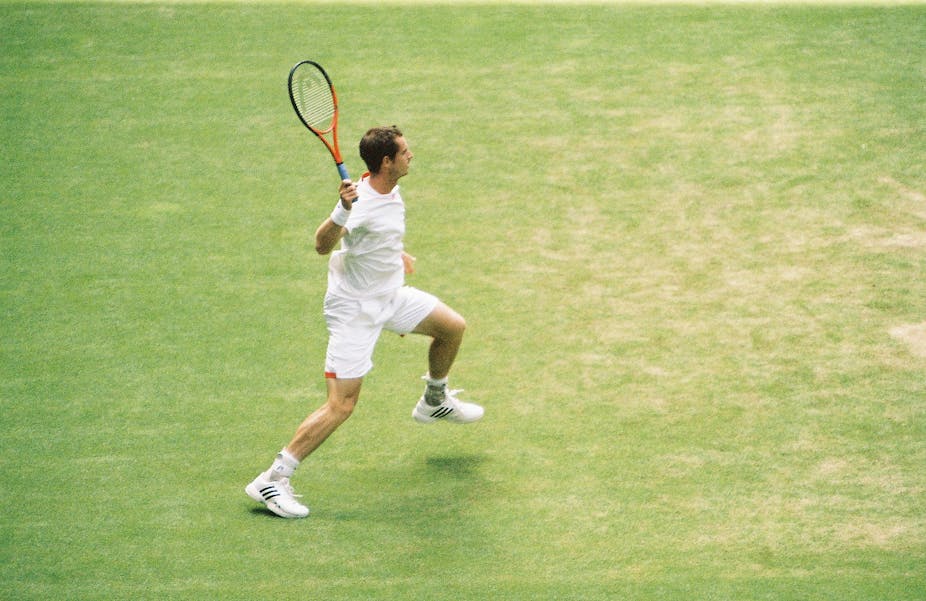Britain’s number one tennis player must have been looking forward to an opening week of Wimbledon with the pressure slightly off, but thanks to England’s World Cup failure, a nation turns its lonely eyes to a Scot.
In 2012 when a host of gold-medal winning performances at the London Olympics, and a euphoric nation, helped Andy Murray towards Olympic Gold. That bolstered the belief that he could win Wimbledon the following year. Of course, he duly did.
It could have been a similar story this year had an exciting England side taken the World Cup by storm and fostered the same kind of sporting feelgood glow. The fact that it hasn’t shouldn’t worry us too much though, for the nature of tennis means that the professionals on the tour have been raised and trained to deal with immense and sustained pressure, perhaps beyond that in any other sport.
Business as usual?
Murray is a highly successful sports performer who has shown he can deliver success when the pressure is on. Currently ranked number 5 in the world, he is the British No 1, 2012 US Open Champion and reigning Wimbledon and Olympic Singles Champion. He is the most successful British tennis player of all time. So what does it take to become a tennis champion in the modern era?
Playing sport can be a very public event. Players need to learn to cope with performing in front of others, and whilst this can be a celebration of success, when you are trying to battle through adversity, it can be like living out your nightmare in public. The way tennis is scored magnifies this issue.
15 - love
30 - love
40 - love
GAME
As we listen or watch progress through games and sets, this is how a tennis match is announced over the public address system for both players and spectators to hear. Every point is announced and there is a pause between each point to take stock of what has happened. With the score above, one player has been told they are winning three times, before winning the game, whereas the other player has received the same information about losing it.
We know that success develops self-confidence, both in terms of our own performance (winning each point), and being told that we are being successful by significant others – in this case the umpire, calling out the score, providing information of our success for everyone to hear.
Finding focus
It means that tennis players are constantly bombarded during the course of the game with information on how well they are performing. It is hard to think of another sport where the score is so clearly and constantly expressed to the players and spectators. All sports people have to be mentally tough, but tennis players have to overcome a relentless flow of negative feedback (assuming they’re not cruising through 6-0, 6-0, 6-0).
Given this, tennis players learn how to focus on the moment. Each point contributes to winning the match, but thoughts need to be on issues such as the analysis of technique (eg. “I am tensing up when serving; focus on relaxing!”), their physical state (“My shoulders are tiring; I’ll take an energy drink and do some loosening exercises”), tactical (“I’ll look for a drop shot!”), and emotional/psychological (“focus on relaxing, play the point, not the occasion”).
This simple fact about how tennis is played – never mind the curiously lonely nature of the sport – affords Murray the skills which mean he should be able to flourish in a broad range of environments, whether the country’s eyes are elsewhere, on other sports, or trained directly on his every move.
Will the brand new Mauresmo/Murray coaching relationship work out? Read more here.

